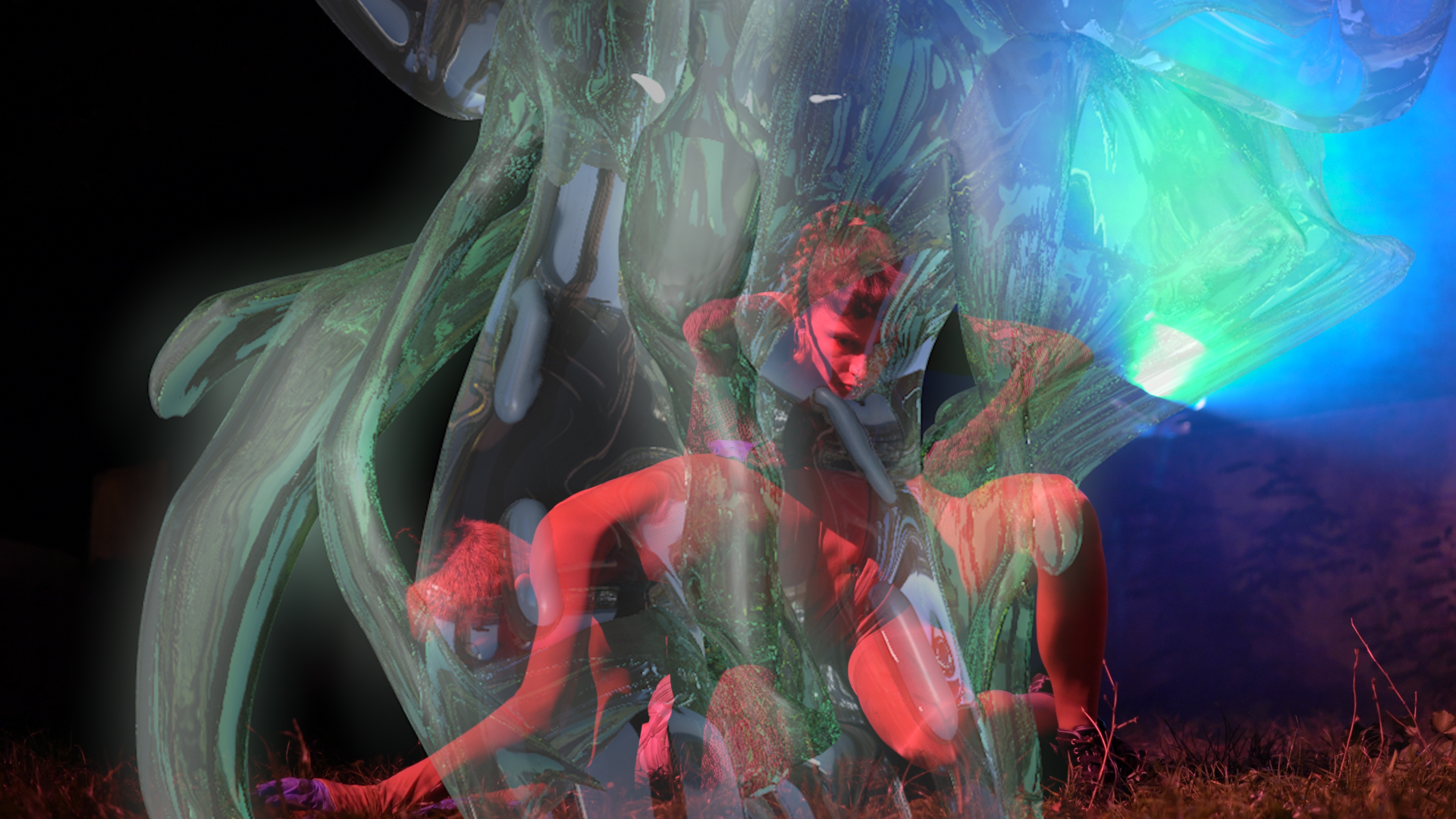Johanna Bruckner’s work addresses the relationship between bodies and new technologies. One of her interests is a critical investigation into the increasing economic valorization of our bodies as a result of new technologies and, for example, big data. Another is to explore how technologies interact with our bodies, how we use them as prosthetics and whether we can merge with them to create new, posthuman forms of life. The utopian potential this creates and the possibilities for resisting established social structures are key themes in her videos. She draws here on theoretical work by the American physicist and philosopher Karen Barad, who argues that matter is “queer” at the molecular level and hence permanently performative. Bruckner similarly depicts bodies as queer, i.e. as fluid matter that is constantly transforming, which means that they can never be ingested or exploited in their entirety.
“Atmospheric Drafts of Intimacy”
In “Atmospheric Drafts of Intimacy” (2020, 29 min.) gaseous substances escape from the Earth and form socalled extracorporeal structures in space: bodies dissolve and blend into their surroundings.
“Molecular Sex”
“Molecular Sex” (2020, 18 min.) depicts a net worked world where people, animals, technology, sex and the atmosphere are entangled. The work centres on a fictional sexbot that can mutate effortlessly from one state to another. Bruckner sees this work as a speculative proposal for imagining new kinds of sub jectivity and sexuality and thinking about the poten tial to exist without binary structures.
Biography
Johanna Bruckner was born in Vienna (Austria) in 1984. She studied fine art, cultural studies and social anthropology in Vienna, Berlin, New York, Stockholm and Hamburg. Her work has been shown at, for example, the Schirn Kunsthalle in Frankfurt, the 57th Venice Biennale, the Haus der Kulturen der Welt in Berlin, the Deichtorhallen in Hamburg and the CAC Centre d’Art Contemporain in Geneva.
IBB Video Space
Since 2011 the IBB Video Space has been screening artists who work with time-based media. The programme, which changes every month, features not only established names in contemporary video art but also up-and-coming artists rarely seen in museums to date. For these, the Berlinische Galerie seeks to facilitate an institutional début. Each month brings a new encounter with work that raises questions about the medium and about social or political issues. Importance is attached to including marginalised perspectives and to shedding light on the impact of power structures.



